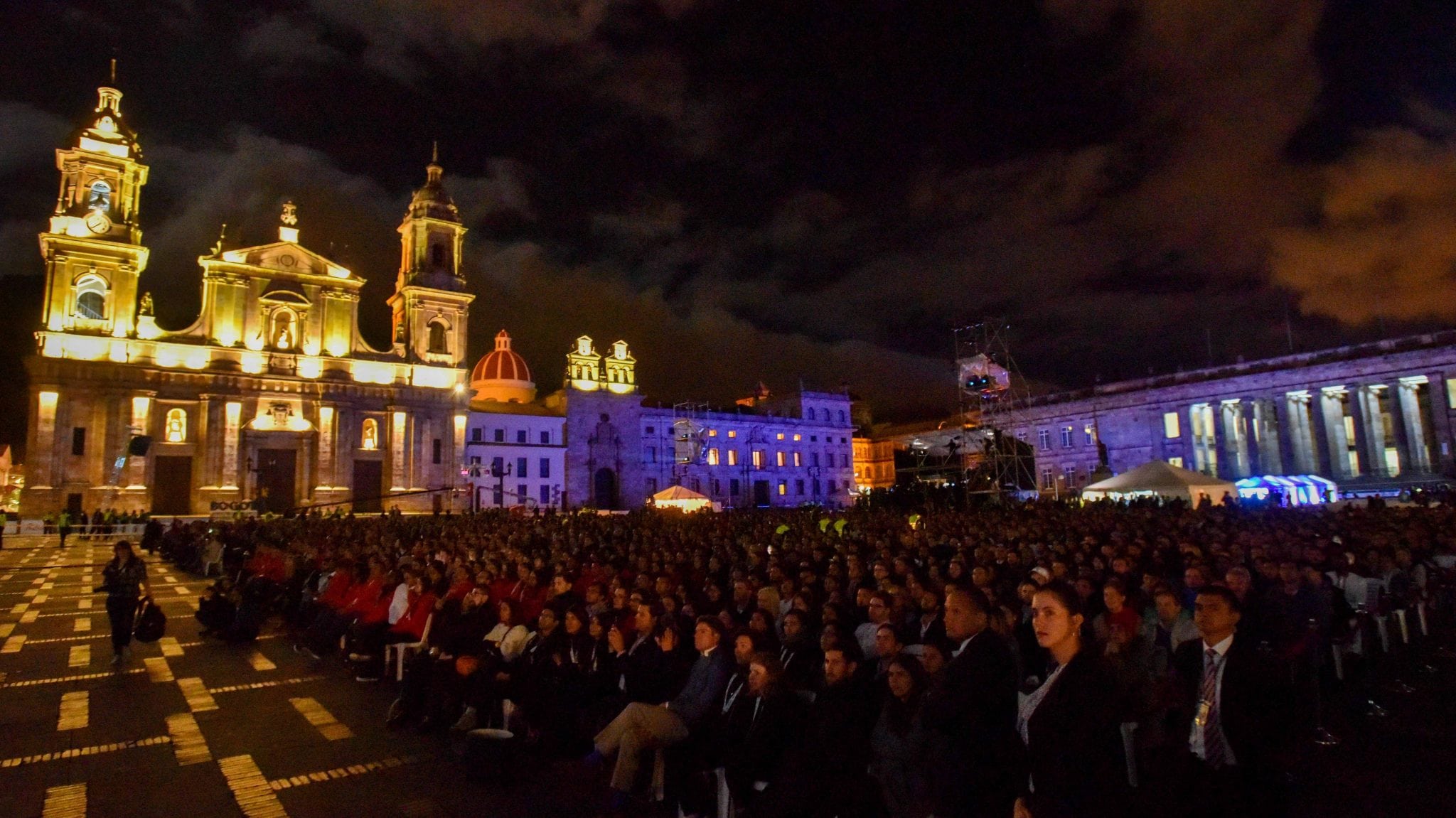Colombia Is Building a Legacy as South America’s Most Innovative Meeting and Event Destination

Skift Take
This sponsored content was created in collaboration with a Skift partner.
Colombia has evolved into a global powerhouse in the meeting and event sector during the last decade by embracing a long-term sustainable development strategy that benefits both visiting organizations and local communities.
If you’ve been paying attention to the growth of Colombia as a tourism destination in recent years, which jumped 27 percent in international arrivals in 2017 alone, this shouldn’t be too surprising. Investment in tourism has reached $85 billion over the past eight years as of 2017. The country’s political stability, strong private industry sectors, and robust hotel development tax incentives have attracted global brands, such as Conrad Hotels, Hyatt, Four Seasons Hotels & Resorts, and Marriott to invest throughout the country.
Many of these brands have strategically launched developments around existing world-class spots such as a Jack Nicklaus-designed golf course, as well as Ágora, a world class convention center in Bogota, with 65,000 square meters of total area, 18 meeting rooms, and a 4,000 person capacity. The venue connects to Corferias, the International Business and Exhibition Center of Bogota, where Hilton Hotels & Resorts is building a property.
Colombia’s new tourism campaign, “Land of Sabrosura,” is helping drive the country’s leisure tourism and meeting and event influx, portraying the character of Colombian people and destinations through diversity, authenticity, empathy, joy, and music. “Sabrosura” is a local word without a direct English translation, referring to a positive, professional, can-do attitude and the determination to make the extraordinary happen. In the context of meetings and events, “sabrosura” can help describe how the power of connecting face to face can yield better results for organizations around the world.
A Recipe for Success
Colombia is equipped with modern infrastructure and venues that have hosted events for decades, as well as proximity that is convenient and accessible. Colombia has six international airports with more than 1,000 flights weekly combined, welcoming visitors from 46 cities across all of the major carriers.
Colombia is also home to eight UNESCO World Heritage Sites which have been pivotal in showing the government and the private sector the value of protecting the country’s spirit. Some of these sites, as well as a handful of national patrimony locations, can serve as non-traditional meeting and event venues. Imagine gathering in a salt mine located 500 feet underground at The Salt Cathedral of Zipaquirá near Bogota, attending an inaugural dinner complete with Caribbean flavors and rhythms at the San Felipe de Barajas fortress in Cartagena, or being part of a steering committee surrounded by Fernando Botero’s art work in his museum in Medellin.
In recent years, the world has followed the agendas of happenings in Colombia such as the World Summit of Nobel Peace Laureates and One Young World. The country has also hosted hundreds of corporate meetings, ranging from steering committees, to incentive trips, conventions, and yoga retreats. Last year the United States Tour Operators Association (USTOA) held their Annual Out of Country meeting in Colombia, and Barranquilla was just ratified as the 2020 venue of the Inter- American Development Bank Assembly.
The country’s growing power in the meeting and event sector is made clear when looking at the International Congress & Convention Association’s (ICCA) rankings over the last decade. In 2016, Colombia was the 29th most popular country for meetings worldwide on ICCA’s list, up from 50th in 2006. In ICCA city rankings, Bogota, Medellín and Cartagena secured the 59th, 62nd and 81st places worldwide, respectively. Comparatively, in 2006, Bogota ranked 130th, Cartagena came in at 148th, and Medellín didn’t even appear on the list until 2007.
Leaving a Legacy in Colombia
Legacy left by last year’s One Young World event, hosted in Bogota, is a clear case for how an event can continue to resonate after the event has ended. Today, the board that was formed to lead the global meeting continues to follow through with the ideas and projects that were ignited during the summit and measure their impact based on their contributions to the United Nations Sustainable Development Goals.
As such, ProColombia, the national organization responsible for promoting international travel and trade, as well as Colombia’s convention and visitors bureaus, focus heavily on the legacy impact of the meeting industry. They’re working with visiting organizations to not only ensure a successful event, but help them share their knowledge and expertise to benefit local communities active across all industry sectors, especially valuable in the context of the country’s new peaceful reality.
As Julián Guerrero, vice president of tourism at ProColombia told SkiftX, “Today, organizations feel inspired to contribute and extend their success to others. They want to establish long-term business partnerships and educational opportunities that reflect their work to drive knowledge transference and professional development. We invite these organizations to be a piece of our peace.” When organizations host their meetings and events in Colombia, the local culture and hospitality infuse the event to create uniquely notable partnerships and experiences that can help inspire both attendees and planners alike.
This content was created in collaboration with ProColombia and published by Skift’s branded content studio, SkiftX.






